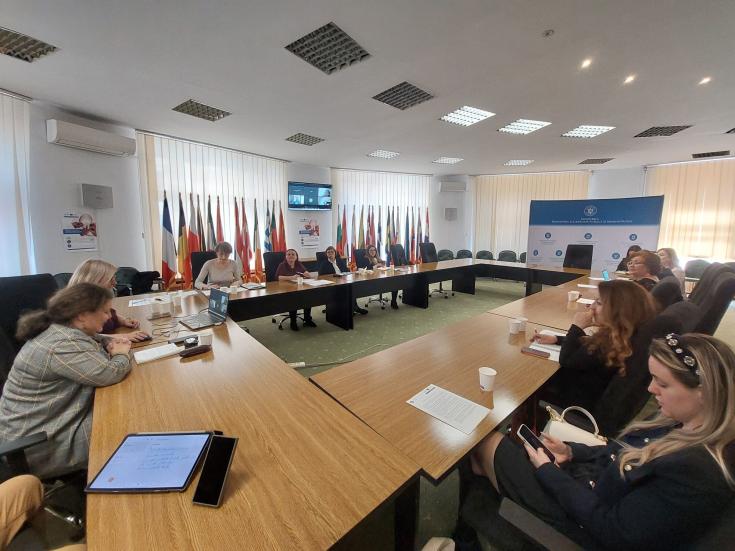Stakeholder Meeting on SHARING Event Conclusions
Bucharest, March 20, 2025 – The Ministry of Development, Public Works and Administration (MDLPA), as the lead partner of the SHARING project, funded through the Interreg Europe 2021–2027 Programme, shared best practices presented at the second interregional event of the project, organized by the Commune of Plœuc-l’Hermitage, France, a partner in the project.
The exchange of experiences and debates on cooperation and partnerships in France—a country where cooperation is a traditional working method—led to the identification of best practices regarding how collaboration between administrative-territorial units, as well as between them and national, decentralized structures or intercommunity development associations, can foster local development.
MDLPA presented to its project partners—the Ministry of Investments and European Projects, the Association of Romanian Communes, the Ilfov County Council, and ADIGIDI (Intercommunity Development Association for Integrated Waste Management Ilfov)—concrete examples, some even from Romania, showing how cooperation and partnerships can address current challenges faced by most administrative-territorial units in Europe, especially the smaller ones:
-
Urban planning and land management in the context of environmental challenges and sustainable development,
-
The transformation of abandoned industrial areas into useful sites,
-
Supporting disadvantaged individuals, the elderly, and children, and integrating them into the community,
-
Facilitating economic development and promoting tourism or local producers and products,
-
Ensuring medical assistance in rural areas,
-
Making libraries and information sources more accessible to the population,
-
Providing electronic services,
-
Writing and implementing European and national projects to identify alternative funding sources.
All these examples have shown that partnerships between local, county, regional, and national authorities can generate viable development solutions with direct benefits for communities, especially in rural or underserved areas. These will be analyzed in detail throughout the project, with the aim of improving legislation and practices related to inter-municipal cooperation and promoting actions and investments in partnership.
The meeting highlighted a clear message: cooperation works best when it is built on continuous dialogue, mutual support and respect, and shared goals.

